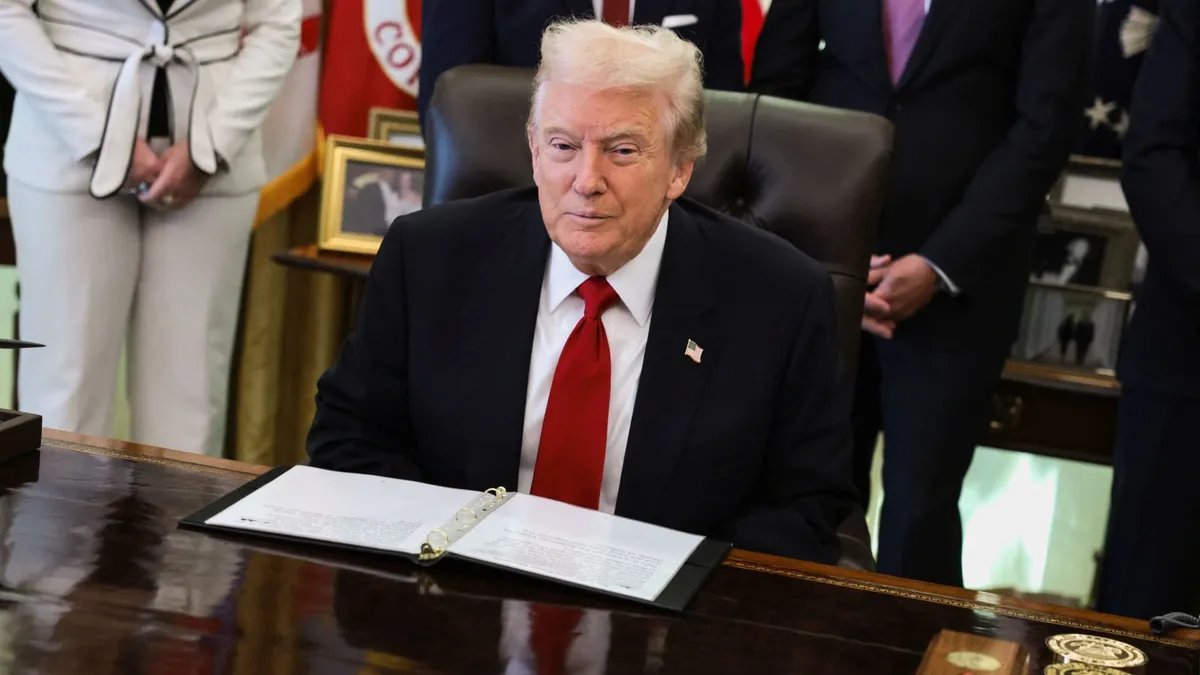
In a groundbreaking move aimed at expanding access to essential medication, President Donald Trump on Thursday unveiled significant agreements with pharmaceutical giants Eli Lilly and Novo Nordisk. These deals are designed to drastically reduce the prices of certain obesity drugs, including new oral treatments that are set to enter the market soon. This initiative marks a pivotal moment in the ongoing effort to make these costly blockbuster treatments more accessible to the American public.
The agreements will initiate a price reduction for GLP-1 drugs, which will be available to Medicare and Medicaid beneficiaries starting in 2026. Additionally, these treatments will be offered directly to consumers at a discounted rate through a new website, TrumpRx.gov, launching in January. For the first time, Medicare will cover obesity drugs for select patients, a long-awaited development that is expected to broaden the market for these medications and encourage private insurers to follow suit.
Under the new pricing structure, certain Medicare patients will only need to pay a monthly copay of $50 for all approved uses of both injectable and oral GLP-1 drugs, which include treatments for diabetes and obesity. Upcoming obesity pills from Eli Lilly and Novo Nordisk, pending necessary approvals, will have a starting price of $145 per month for those accessing them through Medicare, Medicaid, or TrumpRx, according to a senior administration official.
The announcement comes as both Wegovy from Novo Nordisk and Zepbound from Eli Lilly have not been previously covered by Medicare for weight loss, and their costs have often exceeded $1,000 per month for consumers. President Trump emphasized that this high cost barrier would come to an end immediately, marking a significant shift in the accessibility of these vital medications.
This initiative is part of the administration's broader strategy to tackle high drug prices in the U.S. and ties into Trump's most favored nation policy. This policy aims to ensure that American patients pay the lowest prices available globally. Recent agreements with other companies, such as Pfizer and AstraZeneca, have also aimed at delivering discounted drug prices directly to patients in exchange for exemptions from planned pharmaceutical tariffs.
Health and Human Services Secretary Robert F. Kennedy Jr. highlighted the transformative potential of this initiative, stating that it could result in substantial weight loss for the American public—predicting that 125 million pounds could be lost within a year due to the increased accessibility of these treatments. The impact of obesity drugs extends beyond weight loss; they also play a critical role in reducing risks associated with cardiovascular diseases and other related health issues.
Under the new agreements, Eli Lilly and Novo Nordisk have committed to lowering the price of GLP-1 drugs that Medicare currently covers for diabetes and other conditions to $245 per month. This pricing will also apply to all state Medicaid programs that choose to participate. Notably, Medicare covers around 66 million individuals, making the potential expansion of drug coverage particularly impactful.
The obesity drug coverage will be implemented through a pilot program aimed at covering a significant portion of beneficiaries under Medicare Part D, which manages the program's prescription drug plans. Approximately 10% of Medicare beneficiaries will be eligible for GLP-1 treatments for obesity as well as cardiovascular and metabolic benefits, categorized into three distinct groups based on their health conditions.
As part of the agreements, Eli Lilly and Novo Nordisk will also commit to ensuring that any new medicines they introduce to the market will have most favored nation pricing, extending this pricing model to all state Medicaid programs. Eli Lilly has announced a reduction of $50 for its own direct-to-consumer platform, LillyDirect, which already offers discounted pricing for cash-paying customers.
CEO of Eli Lilly, David Ricks, characterized this deal as a defining moment in U.S. healthcare policy, emphasizing the commitment to improving health outcomes and the overall healthcare system. Similarly, Novo Nordisk CEO Mike Doustdar expressed hope that the announcement would make semaglutide-based medications more accessible to American patients.
This announcement is not the first attempt to expand Medicare coverage for obesity drugs; previous proposals have been met with varying degrees of success. However, the current administration's strategy is seen as a significant leap towards addressing the high costs associated with obesity treatments. The implications of these changes could be far-reaching, potentially alleviating the financial burden on patients and improving health outcomes for millions of Americans.